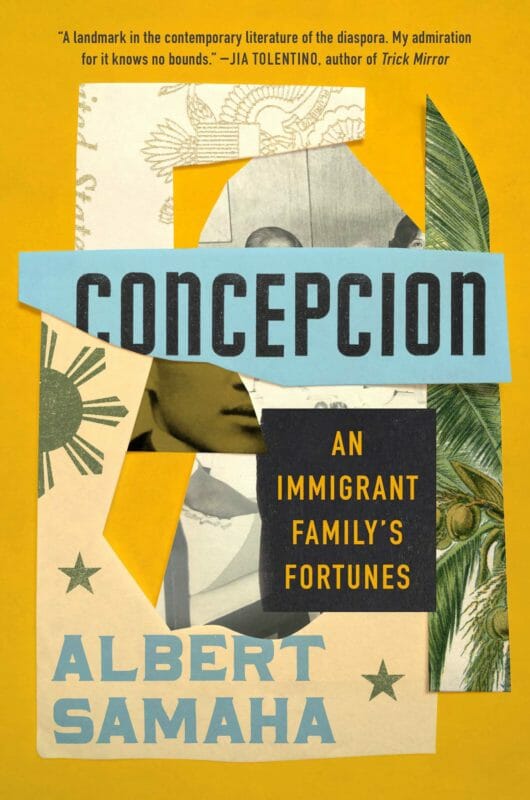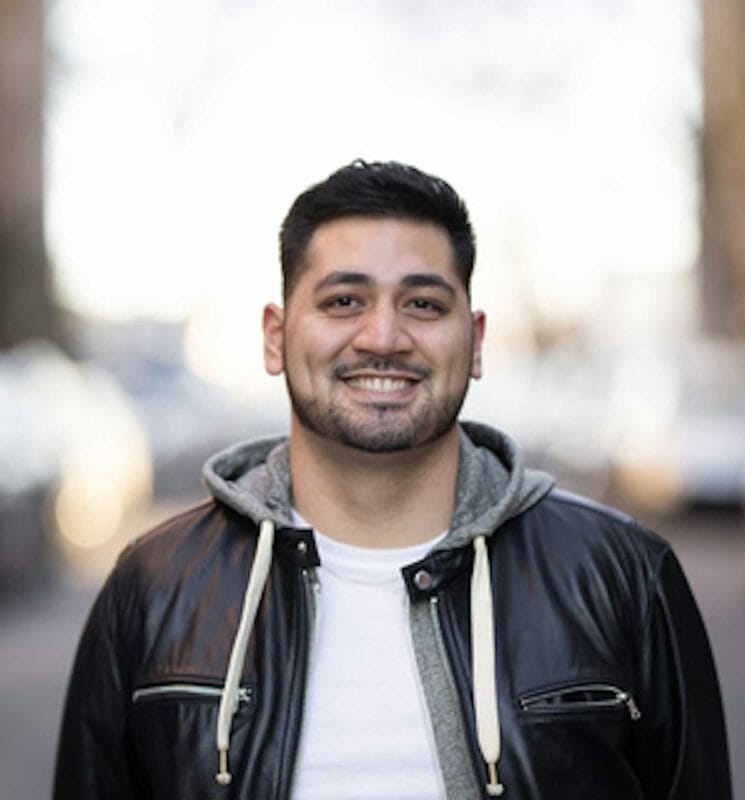Fil-Am journalist’s memoir mulls an ‘unanswerable’ question about immigration

“Concepcion” is published by Riverhead Books. CONTRIBUTED
Journalist Albert Samaha starts with a central question in his memoir: Was worth it for his family to have left the Philippines for a life in the United States?
It was a question that Samaha, an investigative journalist and Inequality Editor at BuzzFeed, had thought about even before he began working on his book “Concepcion: An Immigrant Family’s Fortune,” launched last Oct. 12 by Riverhead Books.
“As I got older and got closer to the age my mom was when she moved here to the States, I began to have more and more questions about her experience and about the decision my elders made to come here,” he says.
Samaha has spent most of his career writing about other people’s families and experiences. He said it took him a lot of self-reflection to realize his family’s story was worth sharing, too.
“As I began to explore those questions and ask [my family] about it and hear their stories of their migration or their experience of coming to the U.S., it just slowly dawned on me that the elements I look for in other people’s stories, I was finding in my own family story.”

“Concepcion” author Albert Samaha. CONTRIBUTED
Samaha worked on his memoir for five years, interviewing many of his relatives and reading more than 50 books, during which he made a number of discoveries about his family’s history.
He had associated his family’s move to the United States from the Philippines with the rise of former Philippine President Ferdinand Marcos’ dictatorship. But he learned that around the same time martial law was implemented in the country, his grandfather had had an affair. That was a contributing factor to his grandmother’s desire to leave the Philippines, he says.
Samaha also found out that his grandmother came to the United States as an undocumented immigrant who overstayed her tourist visa. He tells a family lore in the book about how his grandmother became documented: after getting her purse stolen while she was in San Francisco, she filed a police report and said that among belongings in her purse was her green card. That report allowed her to receive a replacement card that made her a legal permanent resident.
That account, however, was disputed by another relative. Samaha says he filed a public records request for his grandmother’s immigration file, but it didn’t offer any definitive answers.
“I guess the hiccups in the process — the small little stories — were pretty major events in the course of our family’s life,” he says. “And those stories sort of complicated what had been a very seamless narrative in my head and forced me to really grapple with what was truth? And how did that truth fit into our story?”
Samaha came to the conclusion that the question he starts with is unanswerable.
His family left a middle class life in the Philippines to start a new one in the United States. His uncle, who had worked in entertainment in the Philippines, didn’t see moving to America as a sacrifice but a necessity. He got a job at the airport where he often worked 16-hour double shifts. Samaha writes that his uncle thought about quitting, about going back to the Philippines, and questioned why he was working the job he had.
“How do you measure the sacrifice? How you do measure whether it’s worth it?” Samaha asks.
That central question prompted him to ask other questions. Why was the sacrifice even necessary? Why did his elders have to sacrifice while the elders of so many others didn’t have to? Was there a path they had missed along the way? Or was America always the inevitable destination?
“Part of the personal intellectual journey in the book is that in the search for the answer I discovered other questions that are more meaningful,” he says.
Samaha hopes his book prompts readers to investigate their own family’s history.
“I have a line in the book where I say that my family story is one thread in a vast tapestry. I don’t mean to speak for anyone’s experience other than my family’s. My story is only one slice of a much wider pie,” he says.
“Everyone’s family story reflects important lessons about the arc of history and reflects different lessons. And I think the more threads we can unspool, the more of the tapestry will see,” he adds.
He also says that much of Filipino and Filipino American history has been lost due to Spanish and American colonization of the Philippines. And while colonizers dictate the way history is remembered, people can ensure their own stories aren’t erased.
“The message that I hope people get is to preserve the stories we have,” he says. “I hope people will read my book, and then go home and interview their aunties and grandparents about their lives, because I think the only way for us to understand our place in the world is to understand how we got here and how our experiences are shaped by countless historical forces.”

